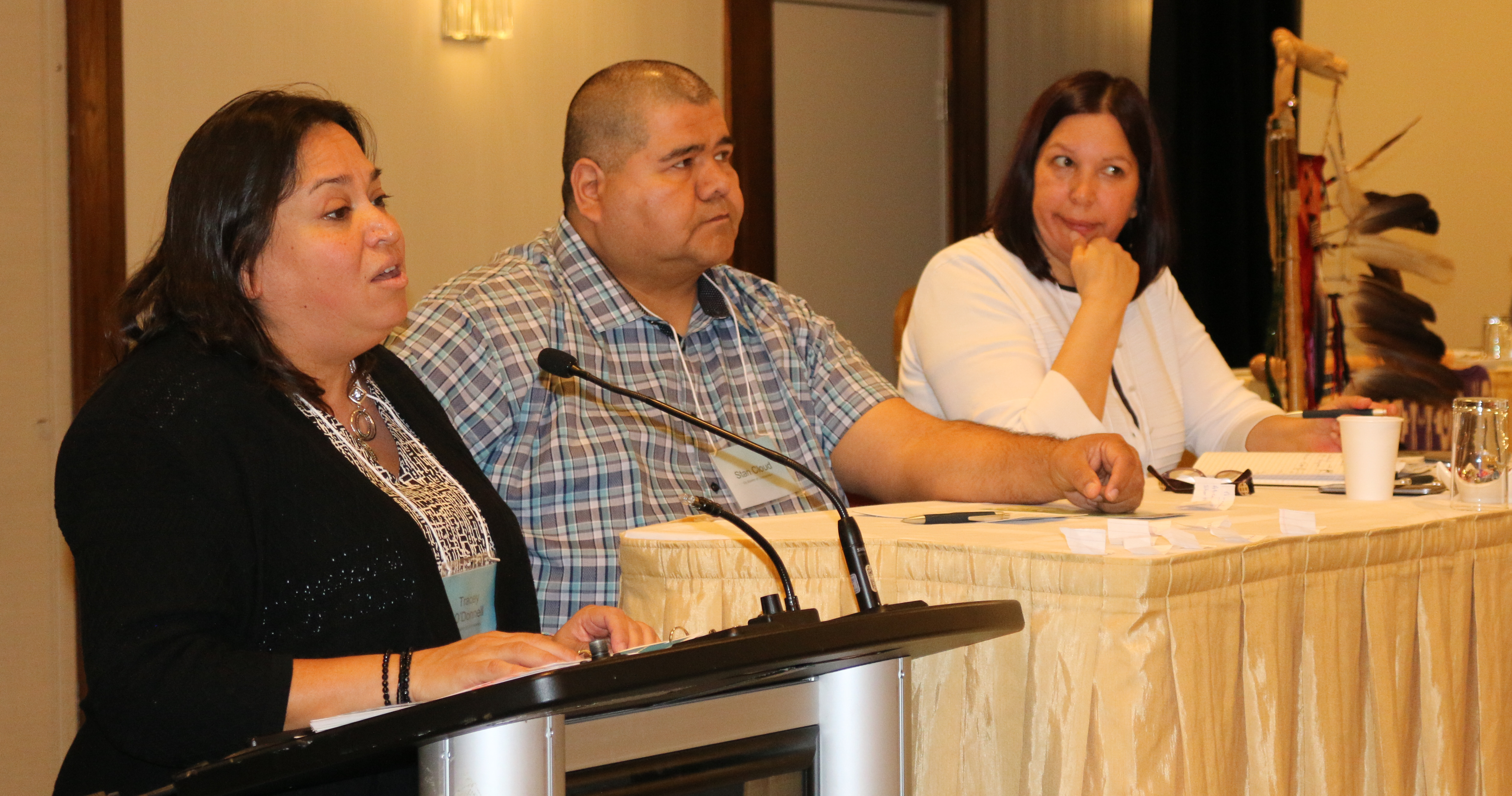Family is community, family is your clan

By Marci Becking
TORONTO – “CAS is an industry. Our kids aren’t for sale. We have a law and a proposed system that will work,” says Anishinabek Nation Social Director Adrienne Pelletier at the “Protecting the Spirit of the Child” conference this week in Toronto.
Anishinabek from all over the territory learned more about the Anishinabek Nation Child Well-Being Law and how it will be a positive impact on our communities.
“We have a responsibility to our children,” says Pelletier. “It takes a community to raise a child. This is our opportunity to assert our right to our children. We need to get engaged. We need to make a difference for the kids. Taking kids to a pow-wow once a year isn’t enough, our system will be more culturally-appropriate.”
Legal counsel Tracey O’Donnell says that the family is community and that many Anishinabek have contributed to the creation of the law.
“Family is your clan. Anishinabek who live in places like Australia and B. C. saw the Child Well-Being Law online and had some input,” says O’Donnell. “It may not affect them in their everyday lives, but they may have family back home. The Child Well-Being system will support families.”
Another thing the Anishinabek Nation is looking at is community standards.
“Our community standards don’t relate to CAS rules,” says O’Donnell. “What constitutes a safe home? What constitutes good upbringing? Community standards need to reflect the reality we live in.”
The law is to take affect April 1, 2018 and is comprised of the following:
-Ngo Dwe Waangizid Anishinaabe
– Interpretation
– Objects of the Law
-Principles Governing the Law
-Role of Family
-Treating each child/youth with respect
the entire law can be found here
Deputy Grand Council Chief Glen Hare says that we need to take ownership of our child welfare.
“Kids are dying in care. We need to take care of our own kids. Our workers are excited – they want Anishinaabe rules and Anishinabek Law,” says
Deputy is also reminding people to come out to the child well-being law information sessions to find out more about the law.


